The New Classics: Amélie
 Tuesday, September 8, 2020 at 4:01PM
Tuesday, September 8, 2020 at 4:01PM 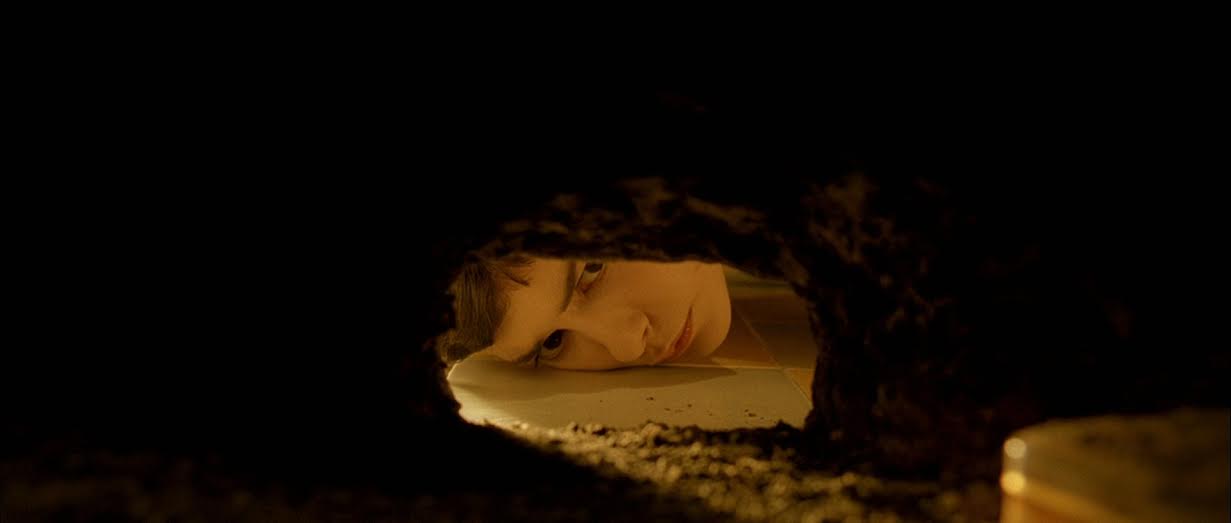
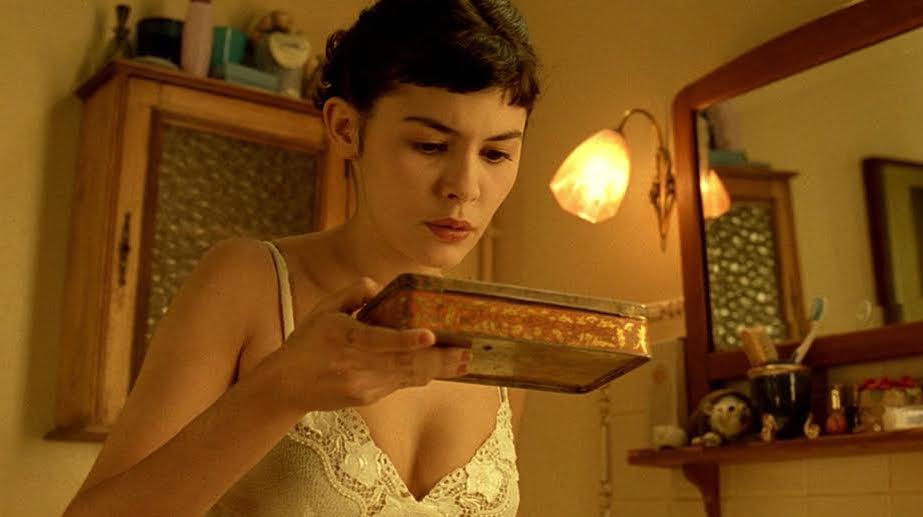
I worked at The Ritz art house theaters in Philadelphia when Jean-Pierre Jeunet’s Amélie was released in 2001. My location was the smallest in the chain so we’d never get the hotly anticipated indie titles. However, when it came time to program Amélie somebody goofed and decided it would be a good fit for my location. We couldn’t pack the mobs in tight enough. Jeunet’s giddy Parisian carousel sold out screenings for nine months straight. I watched a lot of theaters empty out in my years at the movies, but there was something about the beaming smiles on Amélie’s crowds as they stumbled out of the darkness that stands out in the memory.
Since then the knock against Amélie is not that its highs aren’t real, but that they are sugar highs. Empty calories. Like a five-course meal sculpted entirely from marzipan. I get it. It’s easy to imagine skimming across the surface charms of Jeunet’s Paris like one of Amélie’s skipping stones without ever engaging the intellect. I can only reply that Amélie engages my intellect...
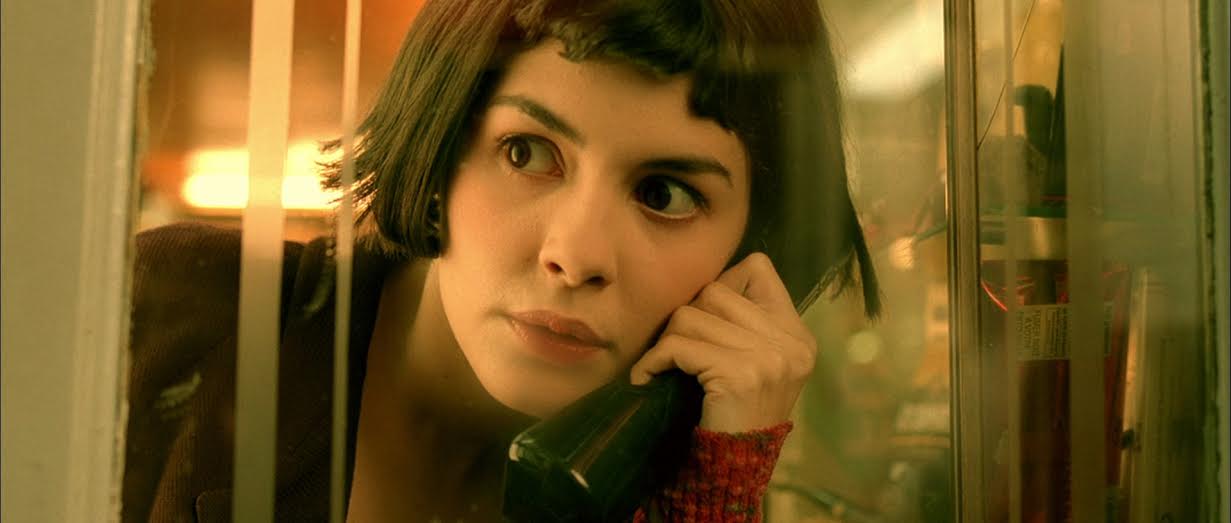
We are quick to dismiss joyful movies as inconsequential, and we don’t readily impart importance on films that cheerfully abandon realism, but I’ve found Amélie rewards pondering for going on two decades now.
Scene: The Toy Box
This 2001 hit is often described as being awash in nostalgia, but as Don Draper pointed out, nostalgia is as much about pain as pleasure. It’s a complexity beautifully captured in the story's key turning point: the toy box scene. Having stumbled upon a tin full of trinkets forgotten behind the wall of her bathroom for decades, Parisian waitress Amélie (Audrey Tautou) goes to great lengths to track down its original owner. When she finally finds the man, Dominque Breteaudo now middle-aged, she chickens out on presenting it in person, leaving it for him in a phone booth without explanation, as if it slipped through a hole in time.
Bretodeau finding this box of treasures is one of Amélie’s epiphanies. Part of the reason the scene is so effective is the way it is played by Maurice Bénichou, an actor burned into the memory of anyone who has ever seen Michael Haneke’s Caché. He is not delighted at the Proustian rush of memories, so much as he’s shaken to his core. As wonderful as it would be to resurrect a collection of long dormants memories, it would also be unfathomably upsetting to be so viscerally blindsided by the passage of decades. There’s a reason Bing Bong fades away at the end of Inside Out.
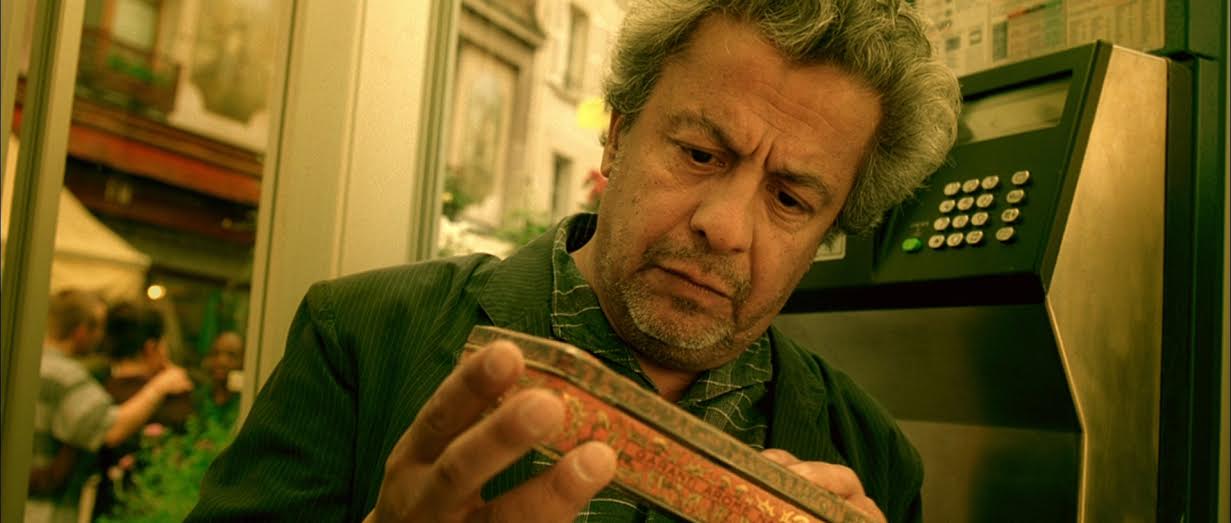
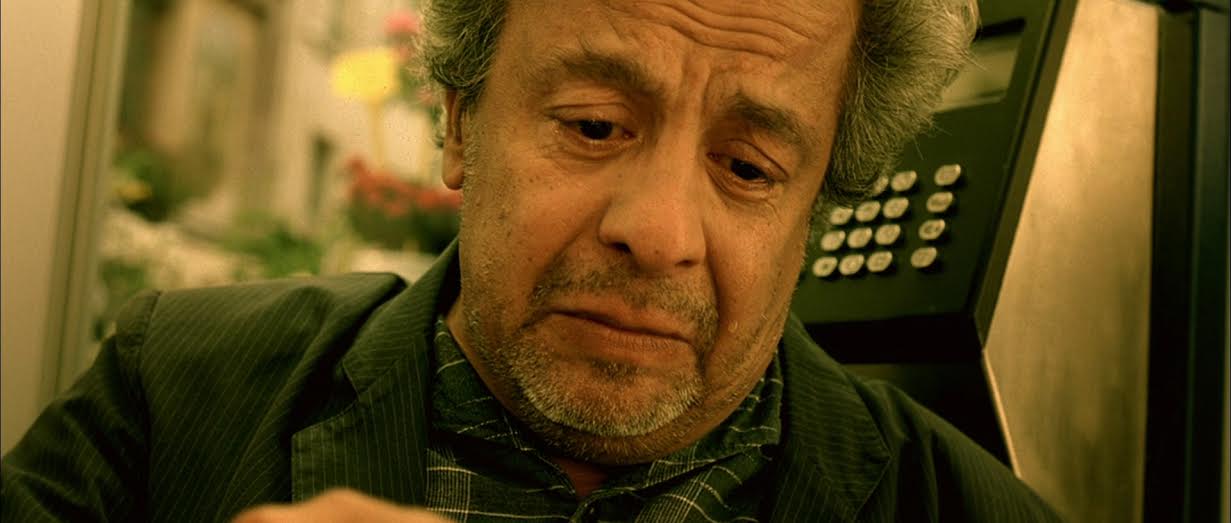
For all the overflow of visual pleasures Jeunet shows restraint in having all the items in the toy box be perfectly ordinary. Amélie’s other observations are like this, remarkable not in their outsized quirkiness, but in their ability to recontextualize the ordinary into something magical. There is the temptation in movies that exist in a heightened reality to make even the inanimate object superficially weird or wondrous. Think late-period Burton or Gondry’s Mood Indigo, also starring Tautou, in which everything is so aggressively whimsical one cannot flip a lightswitch without it leaping from the wall to polka about to some sourceless calliope music. In these cases the audience is often left feeling nothing save for an appreciation of the art department’s willingness to collect overtime. In Amélie, the items themselves are beside the point. Amélie is giving the gift of perspective. Despite being the France-iest movie that ever Franced, Amélie brings to mind the Japanese concept "Mono no aware", which roughly translates to “bittersweet realization of the ephemeral nature of all things”.
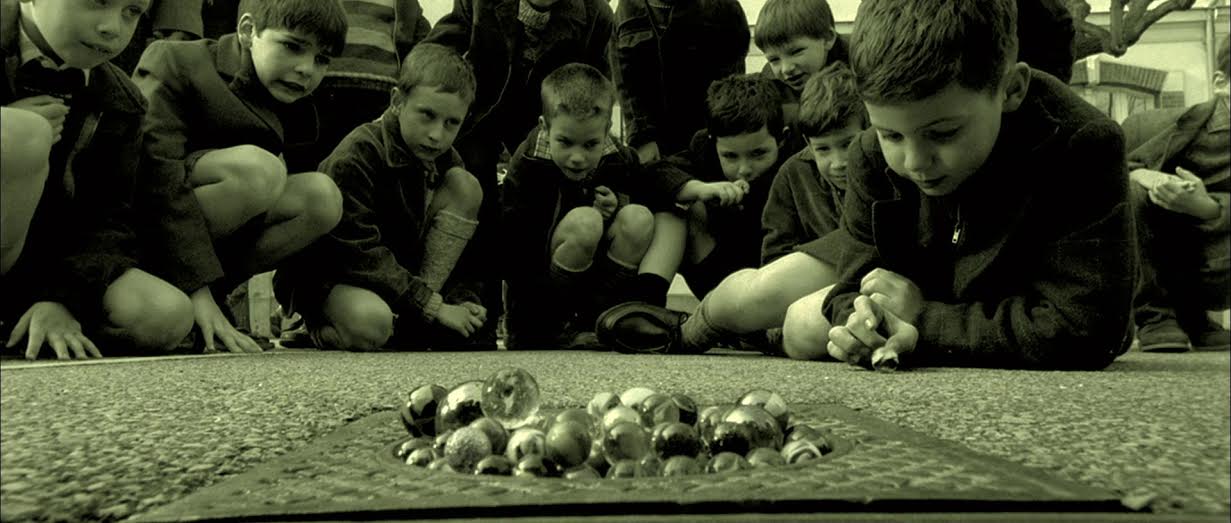
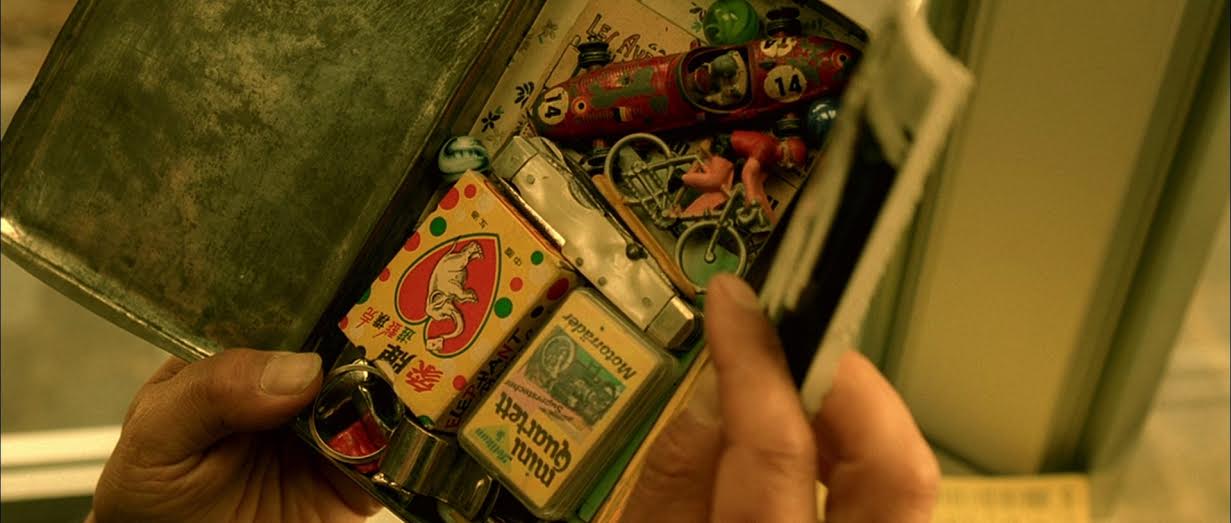
What makes Jeunet's film resonate more deeply than an Instagram filter crossed with a Buzzfeed list (101 Everyday Things That Prove Life is Magic) is its acknowledgment that Amélie’s peaks of euphoria cannot be sustained, at least not without an omniscient narrator to accompany one's every move. This seems increasingly relevant to me in an age where media feeds can approximate Amélie’s flow of perpetual stimulation and meme culture bears a striking resemblance to Amélie’s frequent escapes into imagination. Jeunet’s film presciently pointed out that taken to an extreme all the wonderment becomes little more than detachment, an avoidance tactic for not engaging with the world. Amélie herself almost loses a kindred spirit this way. In this context it’s worth noting that the most successful of her targets is Bretodeau who uses his moment of clarity to see the wisdom of reconnecting with his family. When we glimpse him in the film’s closing moments he is not dwelling on nostalgia but creating new memories with his grandson, memories which will burn brightly then fade away never to resurface. Which is how it should be.
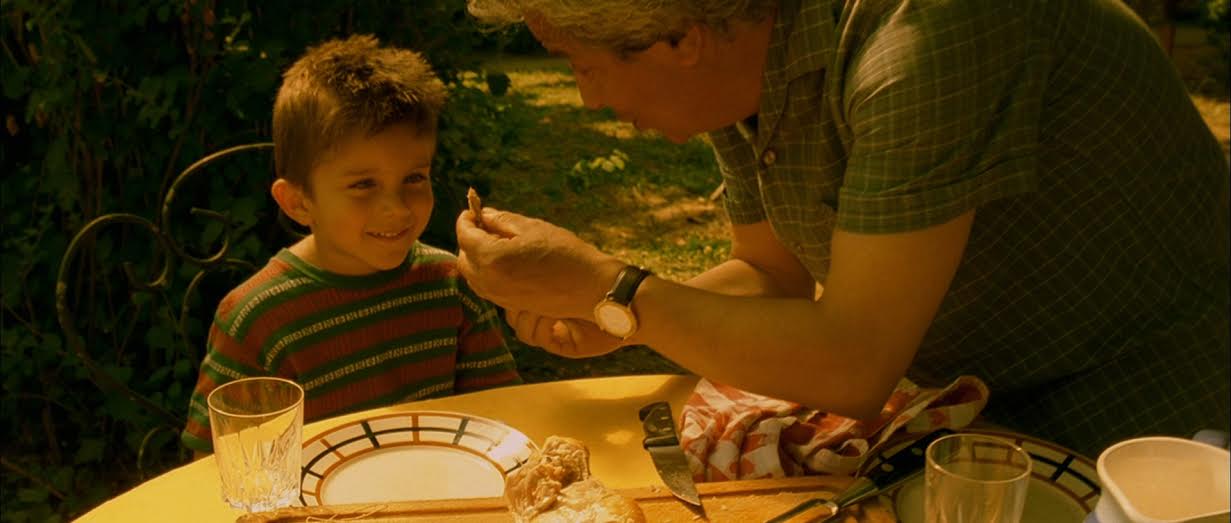
Follow Michael on Twitter and Letterboxd. More episodes of The New Classics.



Reader Comments (10)
It's never really talked about, but Amelie seems to be a character who is in the autistic spectrum. I wonder if that was a deliberate choice from the director or the actress. I guess looking from that perspective, the movie and the character (I mean, the movie is the character and vice-versa) feel a bit more layered and logical.
Michael, thanks for another great article. Amelie is such a wonderful film, so precisely imagined and beautifully realized. This is a lovely tribute to one of the best films of that year and decade.
As much as I do like this scene, my absolute favorite of her, let's say, "good deeds", is the entire sequence with the elderly blind man.
It distills so gorgeously (and sweetly) Amélie's heart, and watching this man literally brighten and come to life brought me to tears the first time I watched it.
This is one of my all-time favorites. In fact, I saw it so many times in succession as a young teen (yup, I was that kid in high school who watched foreign films for fun!), that I rarely sit with it nowadays. Amélie's shyness but determination in all things (and, I admit, her good-natured, imp-like nature) I could relate to so much. Her and Billy Elliot were my spirit animals.
Time for a rewatch!
Michael, I appreciate how much you trust your readers’ intelligence. Your references to Proust and Japanese idiom are spot on. I had never heard of that Japanese phrase before!
Along similar lines, it might interest you to know that the etymology of “Nostalgia.” From Nost, “homecoming,” and -algia “pain”. (You can see the latter suffix in words like neuralgia and fibromyalgia.) So, in etymological terms, “nostalgia” means, loosely, “the pain of returning home.” That seems like exactly what Bretodeau is going through in the phone booth.
I love that, Amory. Thanks.
I think the movie is good enough. Im still dreaming of Emily Watson in that role.
I LOVED the surprise Jodie Foster role in this movie. She was great!
What a beautiful article. Merci Michael. A hug from France
Actor Maurice Bénichou (who plays Bretodeau) died last year, which only adds to the melancholy of this sequence.
Also gone are Serge Merlin (the Glass Man) and Artus de Penguern (Hipolito the writer).
Thank you, Charles. Very kind of you.
And that's so sad about Bénichou! I had no idea. I just watched Haneke's Code Unknown for the first time and I was so happy when he turned up in the end. He is absolutely brilliant in his scene on the train with Binoche. The highlight of the film.
I like this movie very much. To my mind, everything is excellent here, starting from the cast and ending with directing work. It was filmed in 2001, but the computer graphic is fantastic. Of course, Parisian life is slightly idealized here; nevertheless, watching the main character's story is so pleasant. I have chosen this movie for my college class, and I am going to write my film analysis about it. Fortunately, I have also found https://happyessays.com/free-essays/film-analysis/, a resource that provides a great majority of content samples. Thus, I can create a good article covering all aspects of this movie. I am not good at writing, and such platforms are really helpful for me. Talking about the movie, I am sure it should be considered a modern classic. Actually, not so many films can deep you in a particular atmosphere.